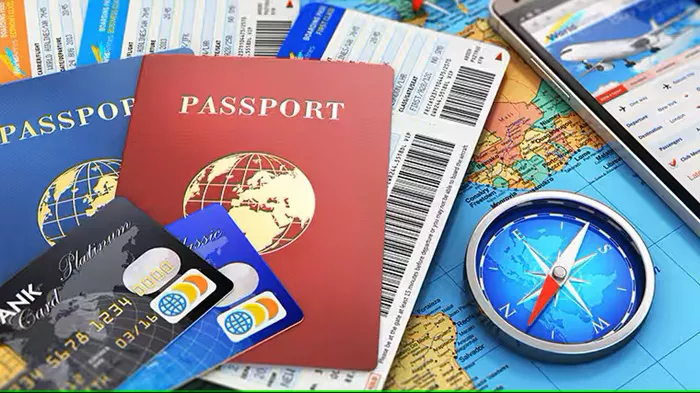Holiday insurance, often referred to as travel insurance, is an essential part of planning any trip. It provides financial protection against unexpected events such as medical emergencies, trip cancellations, lost luggage, and other travel-related issues. However, navigating the process of making a claim can be daunting. This comprehensive guide will walk you through the steps to successfully claim on your holiday insurance, ensuring that you are well-prepared and informed.
Know Your Coverage
Understand Your Policy Details
Before you even embark on your trip, it’s crucial to familiarize yourself with the specifics of your travel insurance policy. Knowing what is and isn’t covered can save you a lot of trouble and disappointment later on. Here’s what you should focus on:
Coverage Limits: Understand the maximum amount your insurance will pay for different types of claims, such as medical expenses, baggage loss, or trip cancellations.
Covered Events: Ensure you know which situations are covered by your policy. Commonly covered events include medical emergencies, trip cancellations due to unforeseen circumstances, and lost or stolen luggage.
Policy Exclusions: Every insurance policy has exclusions. These are situations or conditions that are not covered. Common exclusions include pre-existing medical conditions, certain high-risk activities, and incidents resulting from alcohol or drug use.
Claim Deadlines: Some policies have specific time frames within which you must file your claim. Missing these deadlines can result in your claim being denied.
Check for Exclusions
It’s essential to thoroughly review the exclusions section of your policy. Exclusions are conditions or circumstances under which the insurance company will not pay out a claim. Here are some common exclusions you might find:
Pre-Existing Medical Conditions: Many policies exclude coverage for pre-existing medical conditions unless specifically declared and covered.
High-Risk Activities: Activities such as skydiving, scuba diving, or skiing might not be covered unless you have purchased additional coverage.
Travel to High-Risk Areas: If you travel to areas with travel advisories or warnings from your government, your policy might not cover incidents that occur there.
Negligence or Reckless Behavior: Incidents resulting from reckless behavior, such as excessive alcohol consumption or illegal activities, are typically not covered.
Understanding these exclusions can help you avoid unpleasant surprises and ensure that you take appropriate steps to mitigate risks not covered by your policy.
see also: how much is jet2 holiday insurance?
Initiate the Claim Process
Prompt Communication is Essential
At the first sign of trouble, whether it’s a medical emergency, lost luggage, or a trip cancellation, contact your insurer immediately. Prompt communication is crucial for a smooth claims process. Here’s what you need to do:
Initial Contact: Reach out to your insurer as soon as possible. Many insurers have 24/7 hotlines specifically for emergencies.
Document Everything: Keep a detailed log of all interactions with your insurer, including dates, times, and the names of the representatives you speak with. This documentation can be invaluable if there are disputes or delays.
Follow Instructions: Your insurer will provide specific instructions on how to proceed with your claim. Follow these instructions carefully to avoid any issues.
Contact Your Insurer Promptly
Once an incident occurs, contacting your insurer promptly is crucial. Delays can complicate the claims process and may even result in your claim being denied. Here’s what you need to do:
Call Immediately: As soon as you are safe and able, call your insurer. For medical emergencies, if you’ve been admitted to a hospital, there’s usually a 48-hour deadline for contacting your insurer. It’s best to call before accepting any treatment to ensure that it’s covered.
Provide Necessary Information: When you call, be ready to provide your policy number and a contact phone number. Explain the situation clearly and provide any relevant details.
Emergency Assistance Services: Many insurers offer emergency assistance services that can help with finding medical care, arranging transportation, and other urgent needs.
Collect Supporting Evidence
Keep Receipts and Documentation
To support your claim, you’ll need to provide evidence of your expenses and losses. This includes keeping all relevant receipts and documentation. Here’s what to focus on:
Medical Expenses: If your claim involves medical treatment, keep all medical certificates, hospital bills, and receipts for medications or treatments.
Lost or Stolen Items: If you’re claiming for lost or stolen items, you’ll need to provide proof of ownership and value. This can include photos of the items, original receipts, or bank statements showing the purchase.
Travel Documentation: For claims related to travel disruptions, keep copies of your travel itinerary, boarding passes, and any communication from airlines or
travel providers regarding delays or cancellations.
Document Everything Related to Your Claim
Maintaining a detailed record of everything related to your claim can significantly improve your chances of a successful outcome. Here are some tips:
Create a Log: Keep a detailed log of all interactions with your insurer, including phone calls, emails, and letters. Note down the date, time, and content of each communication.
Take Photos: If you’re claiming for damaged items, take clear photos of the damage. For stolen items, photos of the items before they were stolen can be useful.
Witness Statements: If there are witnesses to the incident, ask them to provide written statements. These can support your claim and provide additional evidence.
Excess Payment
Understand Your Policy’s Excess Requirements
Most travel insurance policies include an excess amount, which is the portion of the claim that you are responsible for paying. Here’s what you need to know:
Check Your Policy Documents: Your policy documents will specify the excess amount for different types of claims. This can vary, so it’s important to check the details.
Evaluate the Worth of Your Claim: Before making a claim, evaluate whether it’s worthwhile considering the excess amount. For small claims, the excess might be more than the claim itself.
Decide Whether to Claim
In some cases, it might not be worth making a claim if the excess is higher than the amount you would receive. Consider the following:
Small Claims: For minor issues, it might be more practical to cover the costs yourself rather than going through the claims process.
Impact on Future Premiums: Making a claim can sometimes affect your future insurance premiums. Weigh the immediate benefit of the claim against potential long-term costs.
see also: Do I Need Health Insurance For Working Holiday Visa Australia?
Cancellation Claims
Contact Your Insurer Quickly
If you need to cancel your holiday, time is of the essence. Contact your insurer within 48 hours of the decision to cancel. Here’s what you should do:
Immediate Notification: As soon as you know that you need to cancel your trip, inform your insurer. Delays can complicate the process and may lead to a denial of your claim.
Provide Documentation: Be ready to provide documentation that supports your reason for cancellation. This might include medical certificates, death certificates, or proof of a home emergency.
Ensure Your Reason for Cancellation is Covered
Not all reasons for cancellation will be covered by your travel insurance. Here are some common reasons that are typically covered:
Unforeseen Illness or Injury: If you or a close family member falls ill or is injured, and this prevents you from traveling, your claim is likely to be covered.
Death of a Family Member: The death of a close family member is usually a valid reason for canceling your trip and making a claim.
Emergency at Home: Certain emergencies at home, such as a fire or flood, might also be covered.
Before making a claim for cancellation, check your policy to ensure that your reason for canceling is included in the list of covered events.
Conclusion
Navigating the process of making a claim on your holiday insurance can be complex, but with careful preparation and prompt action, you can increase the likelihood of a successful outcome. Here’s a summary of the key steps:
Know Your Coverage: Familiarize yourself with your policy details, including coverage limits, exclusions, and claim deadlines.
Initiate the Claim Process: Contact your insurer at the first sign of trouble and keep a detailed log of all interactions.
Contact Your Insurer Promptly: Call your insurer as soon as possible after an incident and provide all necessary information.
Collect Supporting Evidence: Keep receipts, documentation, and evidence to support your claim.
Understand Excess Payments: Be aware of the excess amount on your policy and decide whether making a claim is worthwhile.
Cancellation Claims: Contact your insurer quickly if you need to cancel your trip and ensure that your reason for cancellation is covered.
By following these steps and understanding your policy thoroughly, you can ensure that you are well-prepared to handle any issues that arise during your travels. Travel insurance is there to protect you, and knowing how to navigate the claims process will help you make the most of this valuable safety net.
FAQs about Travel Insurance Claims
1. Can you claim on travel insurance for a canceled flight?
Yes, most travel insurance policies include coverage for canceled flights due to various reasons such as illness, severe weather, or airline strikes. However, the coverage details can vary between insurance providers and policies. It’s essential to review your policy documents or contact your insurance provider to understand the specific terms and conditions regarding flight cancellation coverage.
2. What documents are needed for a travel insurance claim?
When filing a travel insurance claim, you typically need to provide certain documents to support your claim. These may include:
Proof of travel: Such as flight tickets, boarding passes, or hotel reservations.
Proof of expenses: Receipts or invoices for expenses incurred due to the covered event (e.g., medical bills, hotel accommodation, transportation costs).
Claim form: Provided by your insurance company, filled out accurately and completely.
Police report: If the claim involves theft, loss, or damage to property, a police report may be required.
Medical documentation: If claiming for medical expenses, medical reports, bills, and prescriptions may be necessary.
Ensure to keep all relevant documents safe and organized during your trip to facilitate the claims process if needed.
3. How do I use my travel insurance?
Using your travel insurance typically involves the following steps:
Purchase insurance: Buy a travel insurance policy before your trip begins, ensuring it covers your destination, planned activities, and potential risks.
Understand coverage: Familiarize yourself with the coverage details, including what events are covered, coverage limits, and any exclusions.
Emergency assistance: Keep your insurance provider’s contact details handy in case of emergencies and follow their instructions for seeking assistance.
Claims process: If you experience a covered event during your trip, gather necessary documentation and file a claim with your insurance provider according to their specific instructions.
Follow-up: Stay in communication with your insurance provider throughout the claims process and provide any additional information or documentation as requested.
4. Is it worth claiming on holiday insurance?
Whether it’s worth claiming on holiday insurance depends on various factors, including the cost of the claim, the excess on your policy, and the potential impact on future premiums. Before making a claim, consider:
Excess: Check if the claim amount exceeds the excess (deductible) on your policy. If the excess is higher than the claim amount, it may not be worthwhile to claim.
Impact on premiums: Assess how filing a claim may affect your future insurance premiums. Multiple claims within a short period could lead to higher premiums or even non-renewal of your policy.
Cost-benefit analysis: Evaluate the financial implications of making a claim versus covering the expense out-of-pocket.
In some cases, especially for significant expenses or emergencies, claiming on holiday insurance can provide valuable financial assistance and peace of mind. However, for minor expenses, it may be more cost-effective to cover them yourself.
You Might Be Interested In






















